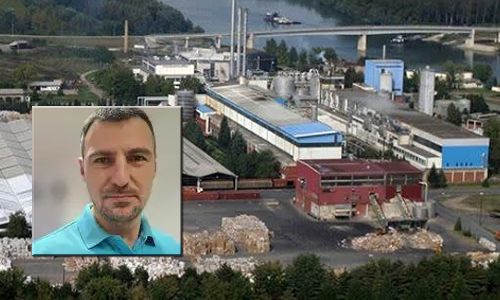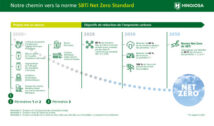
Belišće Paper Mill energy switch predicted to result in 23% reduction in annual carbon emissions.
DS Smith, the FTSE 100 leading provider of sustainable packaging has today announced that Belišće Paper Mill, situated in Eastern Croatia has made significant steps forward in Co2 reductions by switching to green energy to help power its paper making operations.
The Belišće Paper Mill which produces up to 215,000 tonnes of paper a year is targeting a 23% reduction in CO2 emissions annually, equating to a saving of up to 27,000 tonnes of carbon. This figure equates to removing nearly 6,000 passenger vehicles off roads, or just under 67 Million miles driven by an average passenger vehicle*
Providing the green energy electricity ZelEn, HEP Opskrba was first to offer this unique product in Croatia. The company ensures the green electricity provided to DS Smith, is produced from renewable sources such as solar, wind, geothermal, biogas, eligible biomass, and low-impact small hydroelectric sources.
We are very proud to have the Belišće Paper Mill and all our operations across Croatia switch to green energy. Our partnership with HEP Opskrba, who will provide 60% of our energy requirements at the mill, will be a key driver in our overall strategy to reduce the impact of our operations here in Croatia.
— Dalibor Sipl, Energy Manager for DS Smith, in Croatia
The partnership with DS Smith across their operations in Croatia will support their environmental goals, as well as protecting natural resources. As we see more companies becoming socially responsible and environmentally aware, DS Smith are leading the way as the one of the biggest users of green electricity in Croatia.
— Mario Puntaric, Director for HEP Opskrba
The company recently launched it’s Now and Next Sustainability Strategy which reaffirmed its commitment to reduce CO2 emissions against a 2015 baseline by 30% relative production by 2030. In the past year, DS Smith has hit a number of sustainability milestones including an 11% reduction in emissions in 2019 compared to 2015 on a like-for-like basis.

































